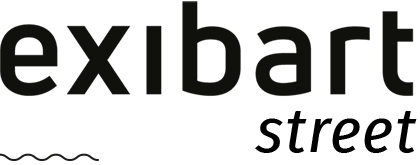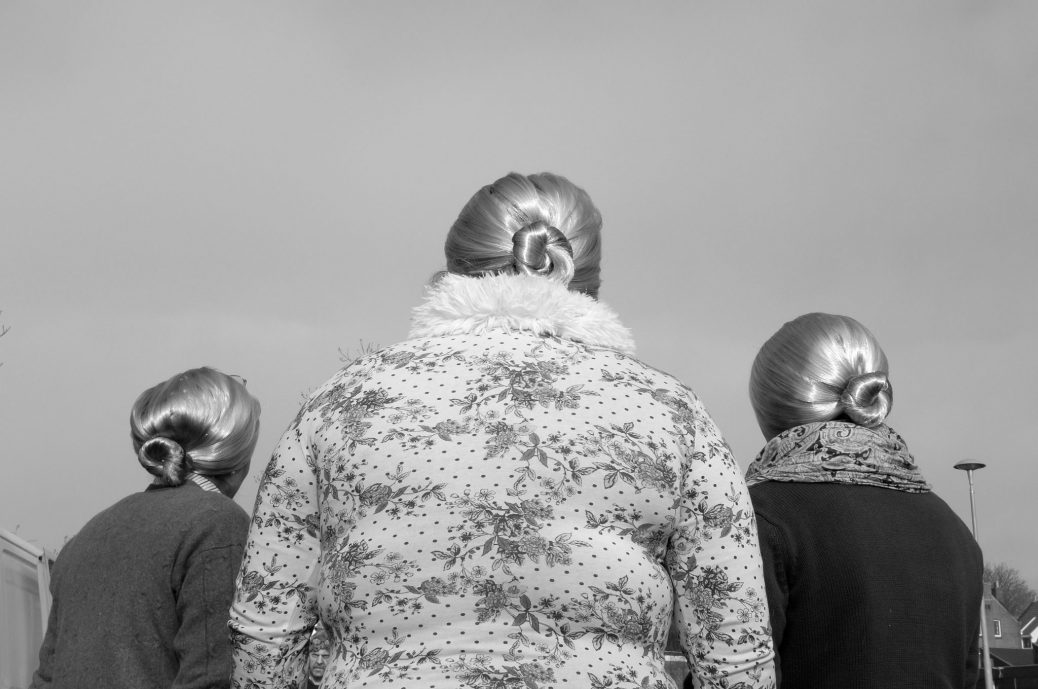Bouwe Brouwer: the Best Series of 2022 exibart street contest
Dear Bouwe,
first of all, congratulation! You are the winner of the Best Series category of the third exibart street contest. Can you tell us something about yourself and about the winning series?
I’m 45 years old, married, father of a beautiful daughter. I work as a primary school teacher at a refugee camp. I live in a small town called Sneek in the Northern part of The Netherlands. When I moved here in 2014 I had just started photography the year before. So it was only natural to start exploring my new surroundings with the camera. This turned into the “Postcards from Fryslân” project. Fryslân (or Friesland, Frysia) is the name of the province I live in. It is an ongoing long-term project. I keep adding new material to it and hope to make a book out of it one day. The winning series is just a very small selection of the much larger body of work.
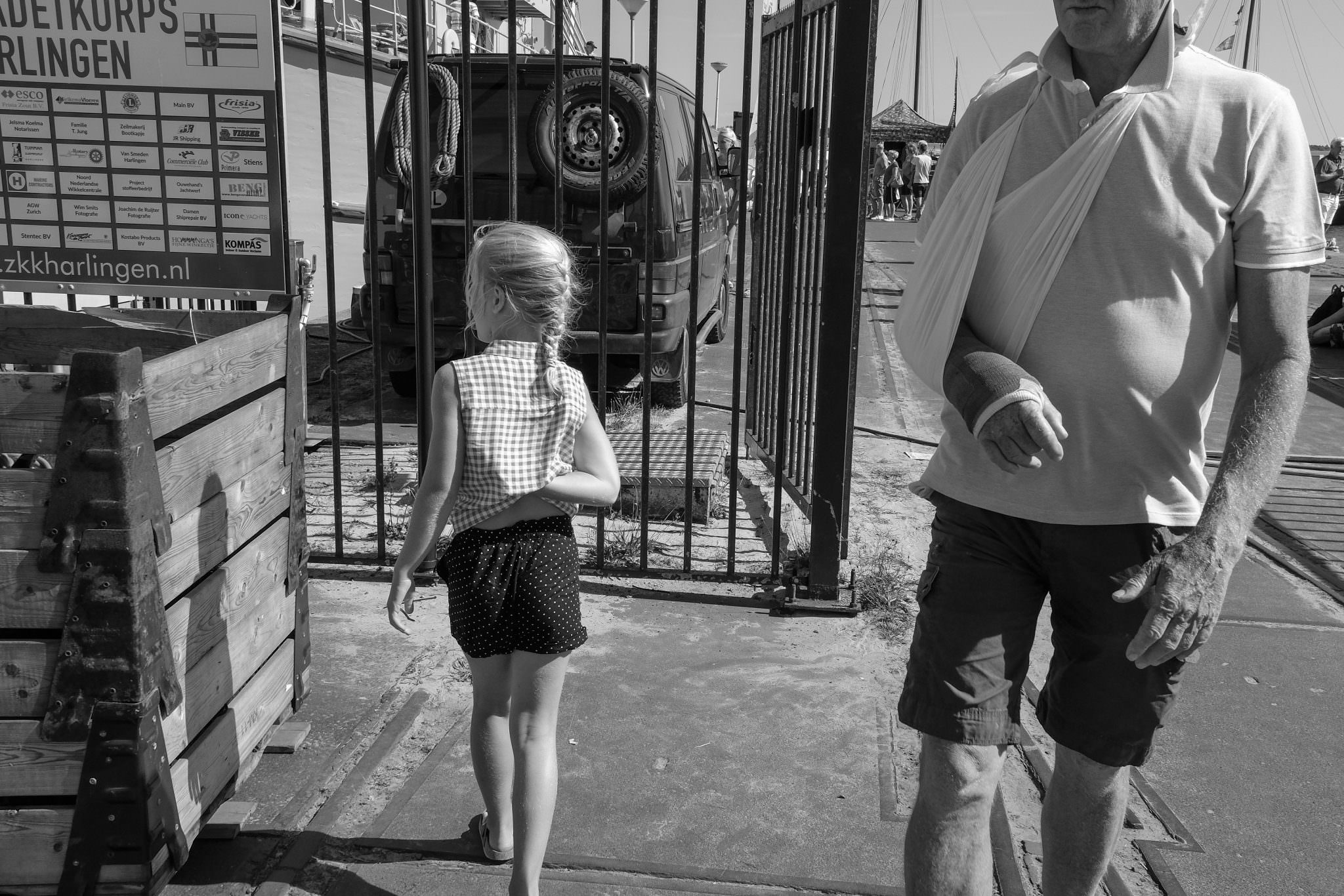
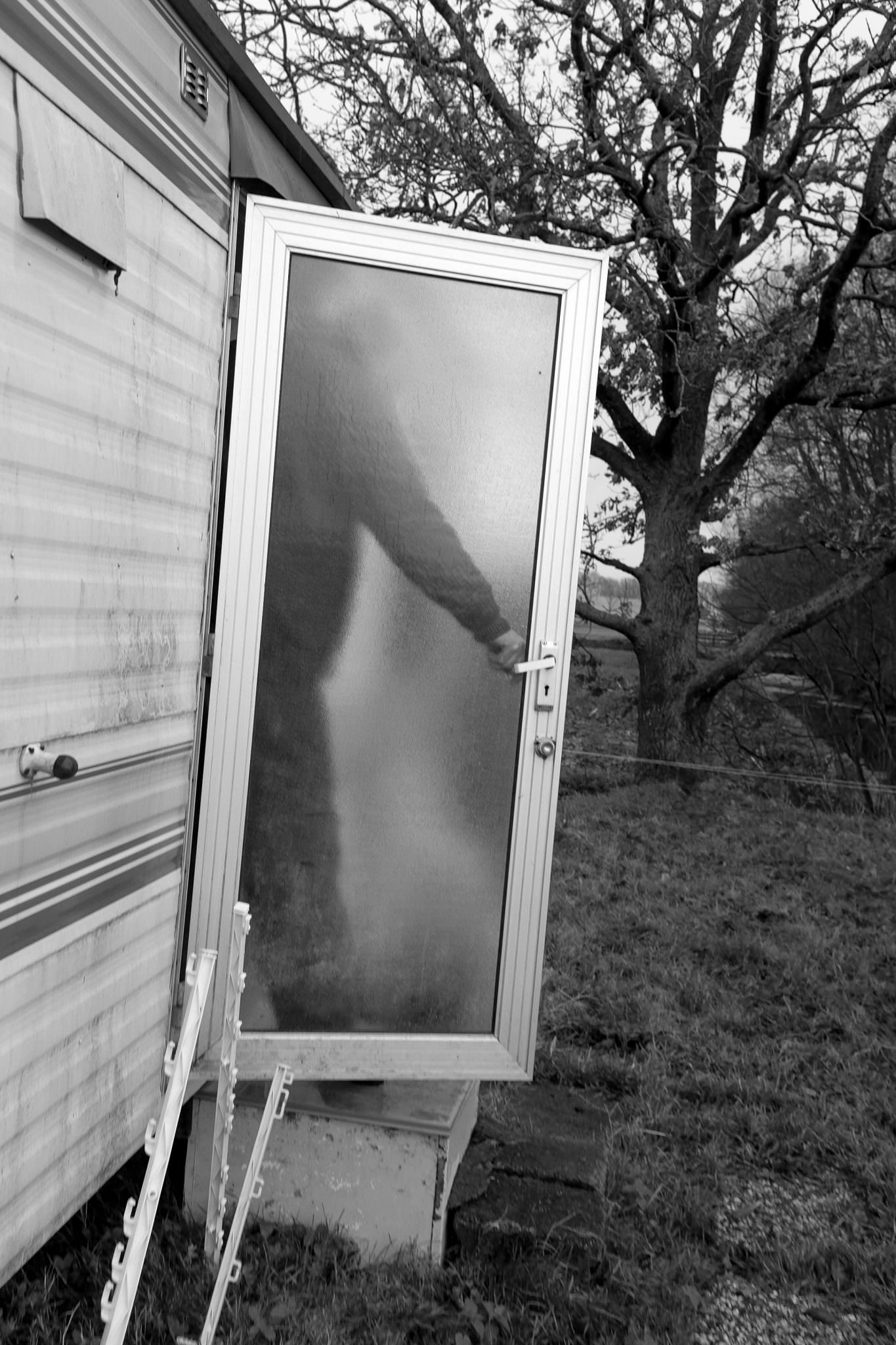
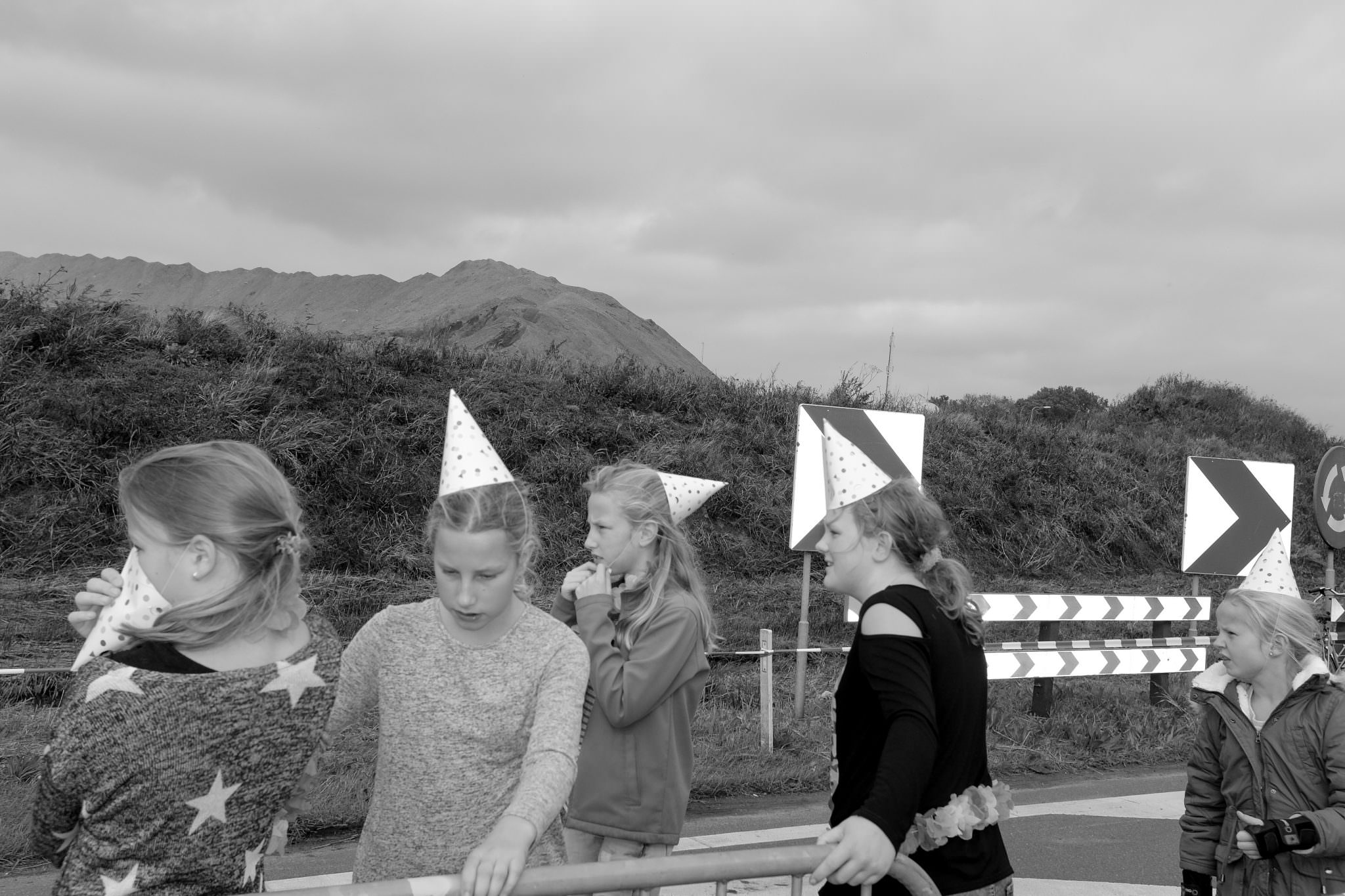
How would you define your photographic style?
I don’t. All I can say is: it’s candid/unposed, black and white, uncropped, and hardly any postprocessing. Formal things like that. Other than that, I just go out the front door and take pictures of whatever interests me or seems to have potential to make an interesting shot. Sometimes it’s very straight forward, sometimes I deliberately leave information out of the frame so it depicts more of an ambivalent situation.
Have you ever studied at a photography school or are you a self-taught artist?
I have studied fine arts and was trained as an illustrator. But after I graduated in 2001 I didn’t really do anything creative for a long time. I became a primary school teacher, which is a great job. In 2008 I started writing, which sort of was my way back into the creative field. And then in 2013 I started to get really interested in photography. I never got any education in that field, just figured it out for myself. I still get a little confused with my camera setting now and then.
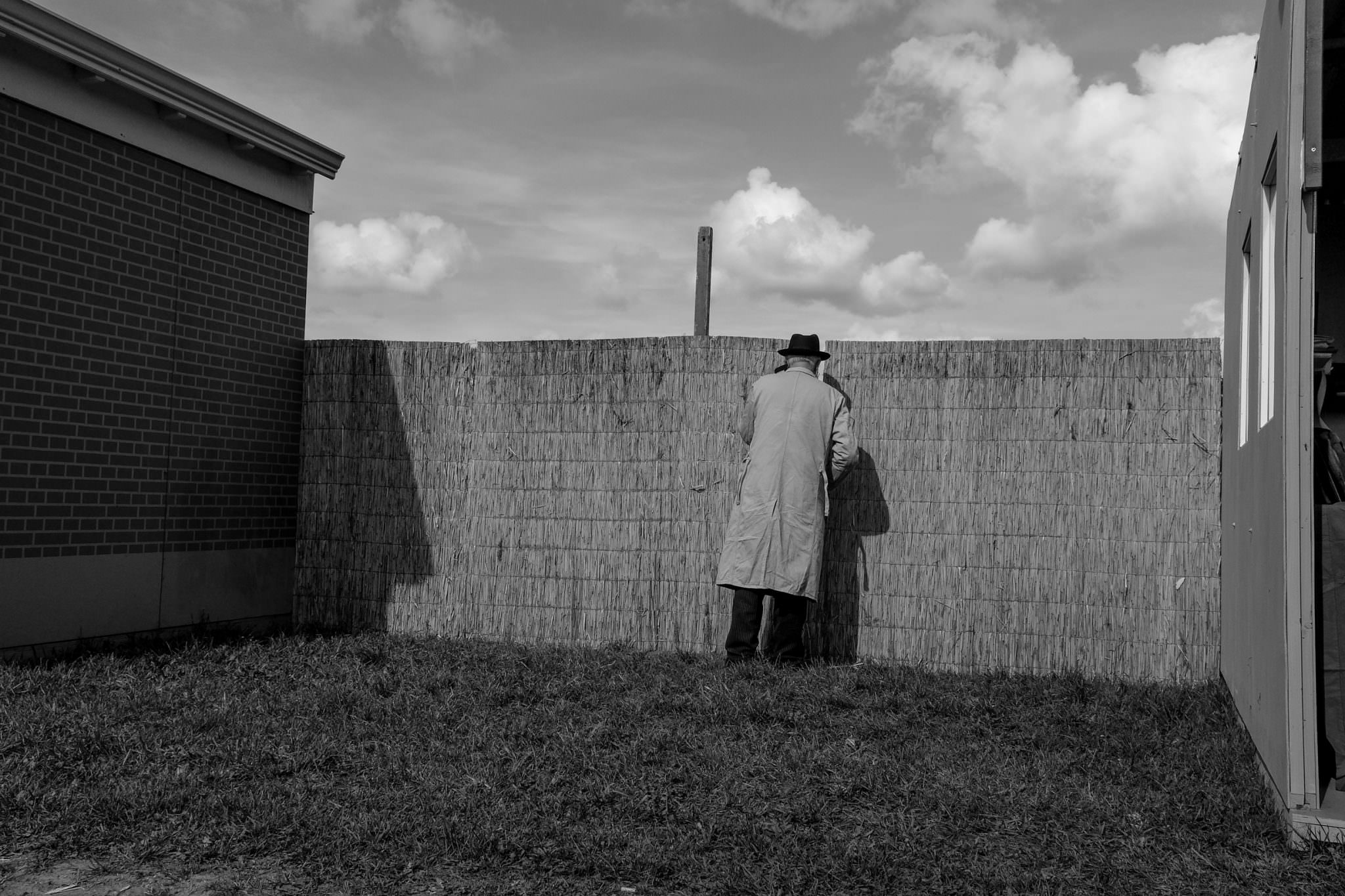
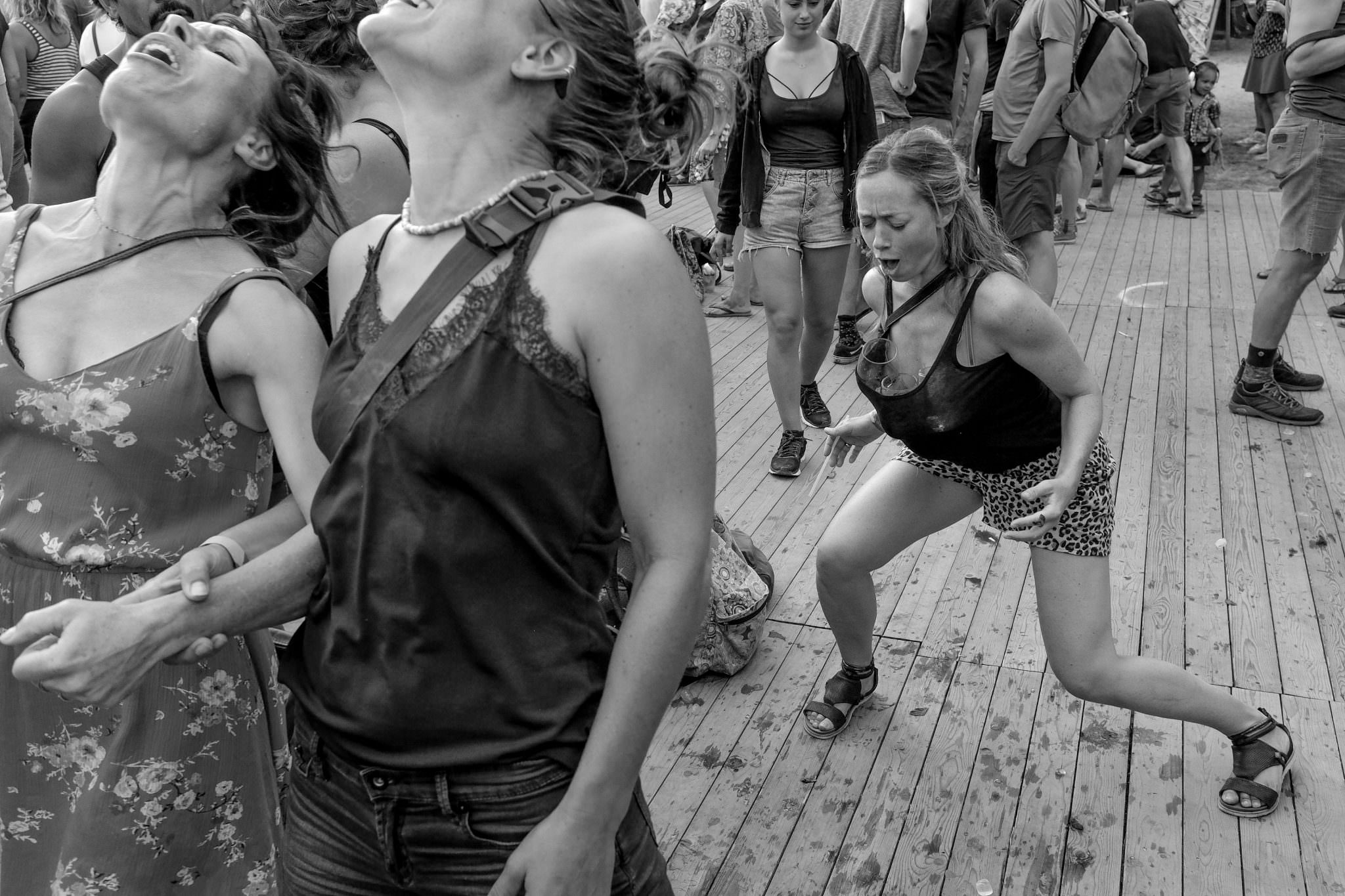
Who are the Masters of Photography who inspired you most in your photographic works?
Back in Arts college Cartier Bresson’s work first caught my eye. And then I got to know the work of Koudelka a bit which blew my mind.
Later, when I picked a camera myself, it was the work of Martin Parr and Joel Sternfeld that really got me enthusiastic. And after that, Winogrand, Eggleston, Friedlander, Larrain. These are the ones I feel closest to. I keep returning to their work.
Do you ever do Street Photography with your smartphone?
No. I only use my phone to take the occasional family picture. It doesn’t feel like a camera to me strangely enough.
“Enjoy the whole creative process! Enjoy being out walking, looking, being alive. Take pictures of what interests you. Of the moments and things you feel connected to and keep doing that!”
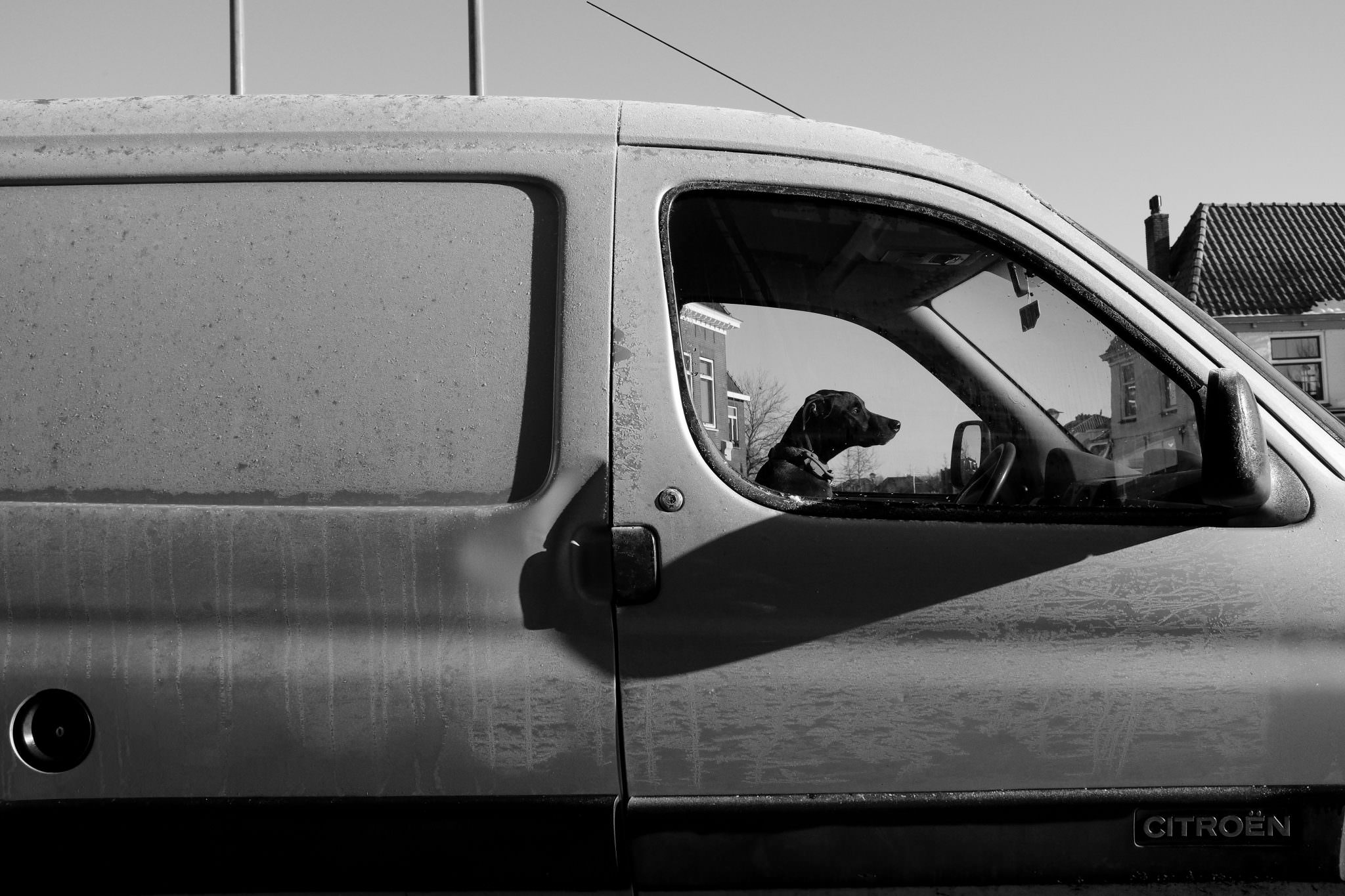
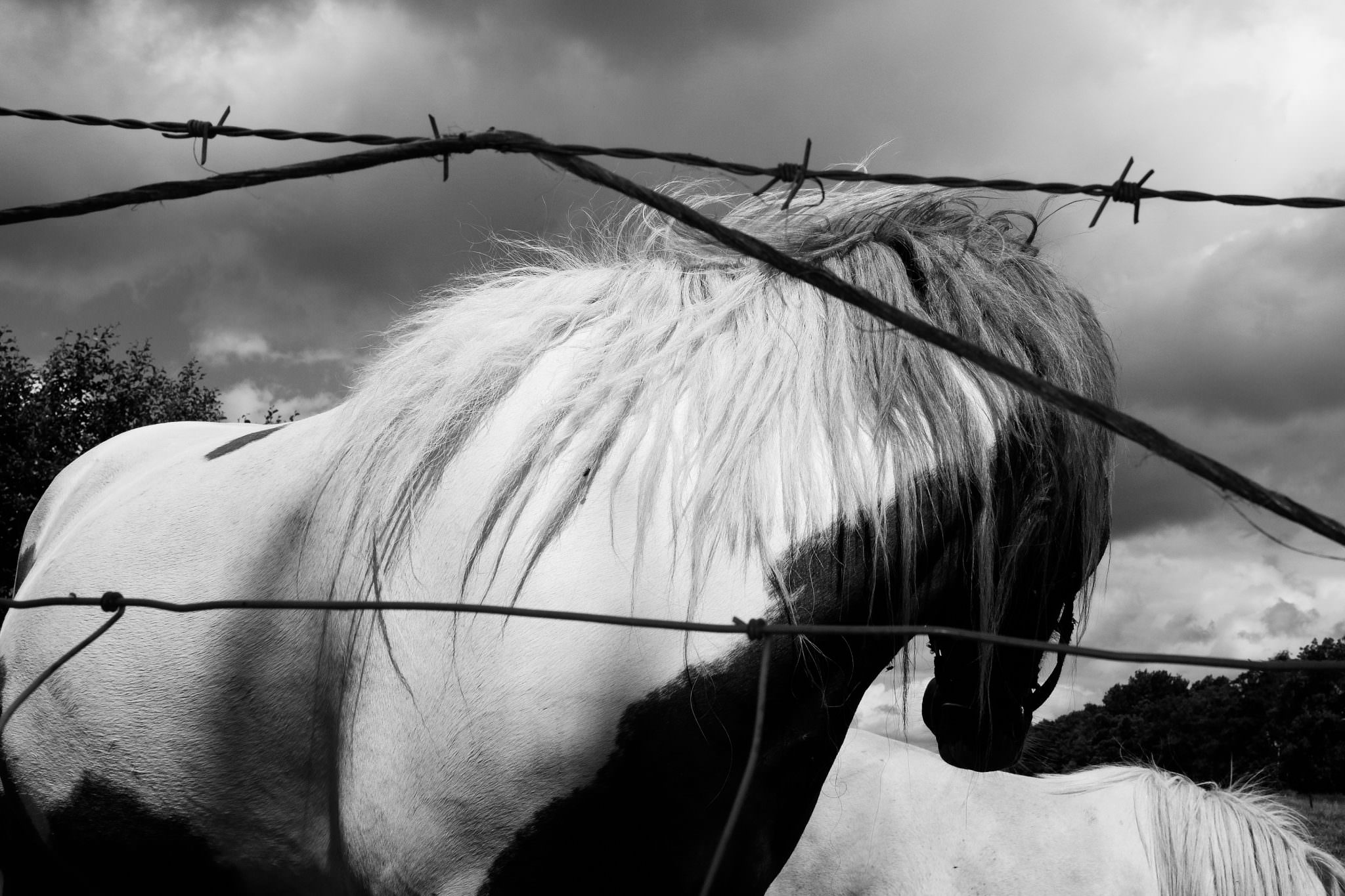
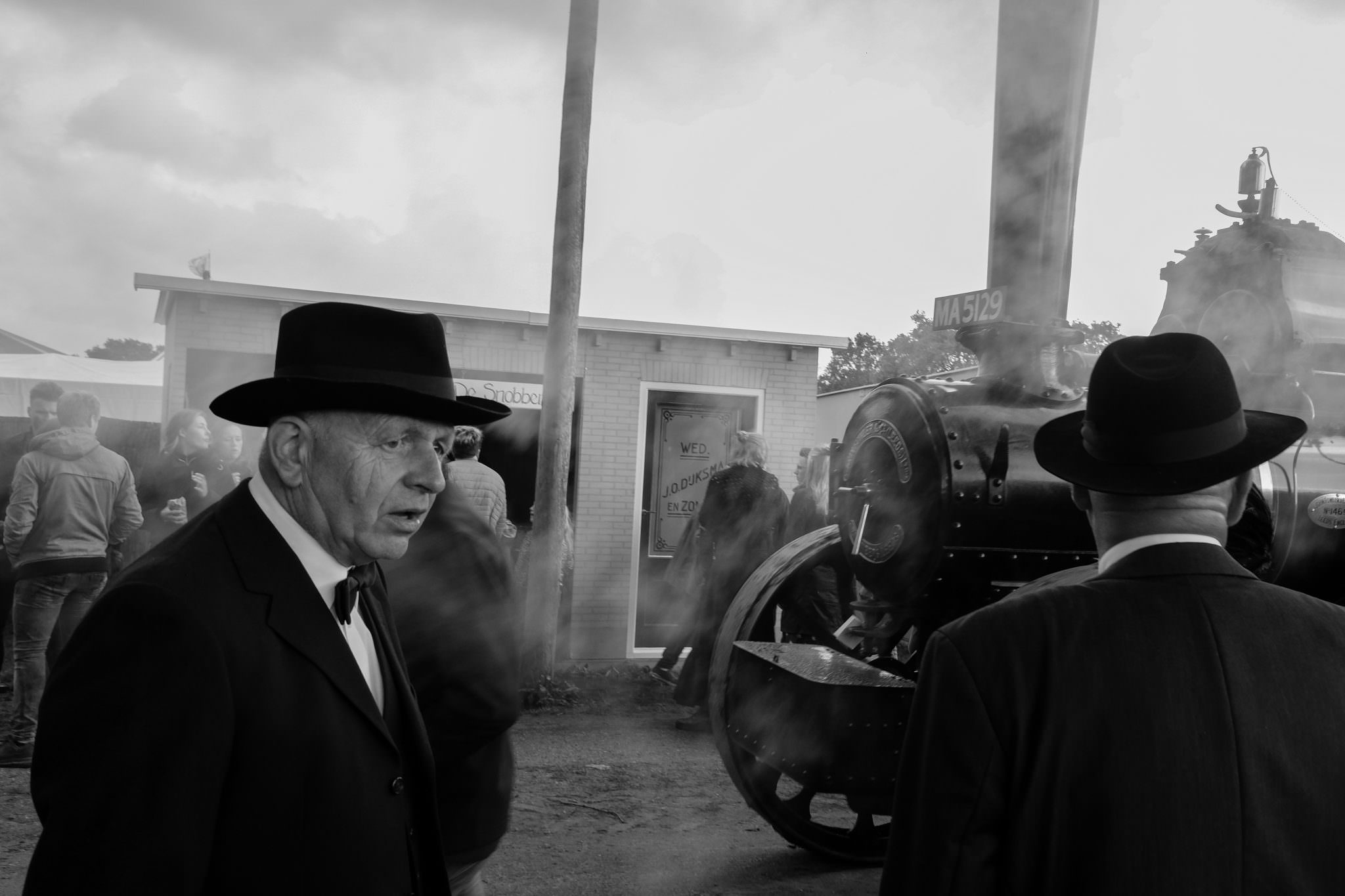
Analog and digital photography. Do you see these as alternatives to one another or the same thing?
In the end it is the result that counts. The camera is just a tool. I shot analog for a while, in 2015 and 2016. Did my own developing. And that was a good experience. It made me more aware of how I want my photos to look. But returning to a digital camera after that was very liberating. I don’t want to think about changing rolls, how much rolls I have got left, or how expensive each shot might be when I am out taking photographs.
Black and white and color. Two different worlds. You decided to go black&white. Why? Do you ever shoot in color?
Almost never. I did when the pandemic started. During our first lockdown I documented our lives around the house and did it in color only. That was a fun experience and I did sort of get a grip on working in color. But in the end my heart lies with black and white. I love the graphic nature of it. And all the different moods you can convey with such a limited palette. Maybe it also derives from the fact I only made black and white drawings in art school.
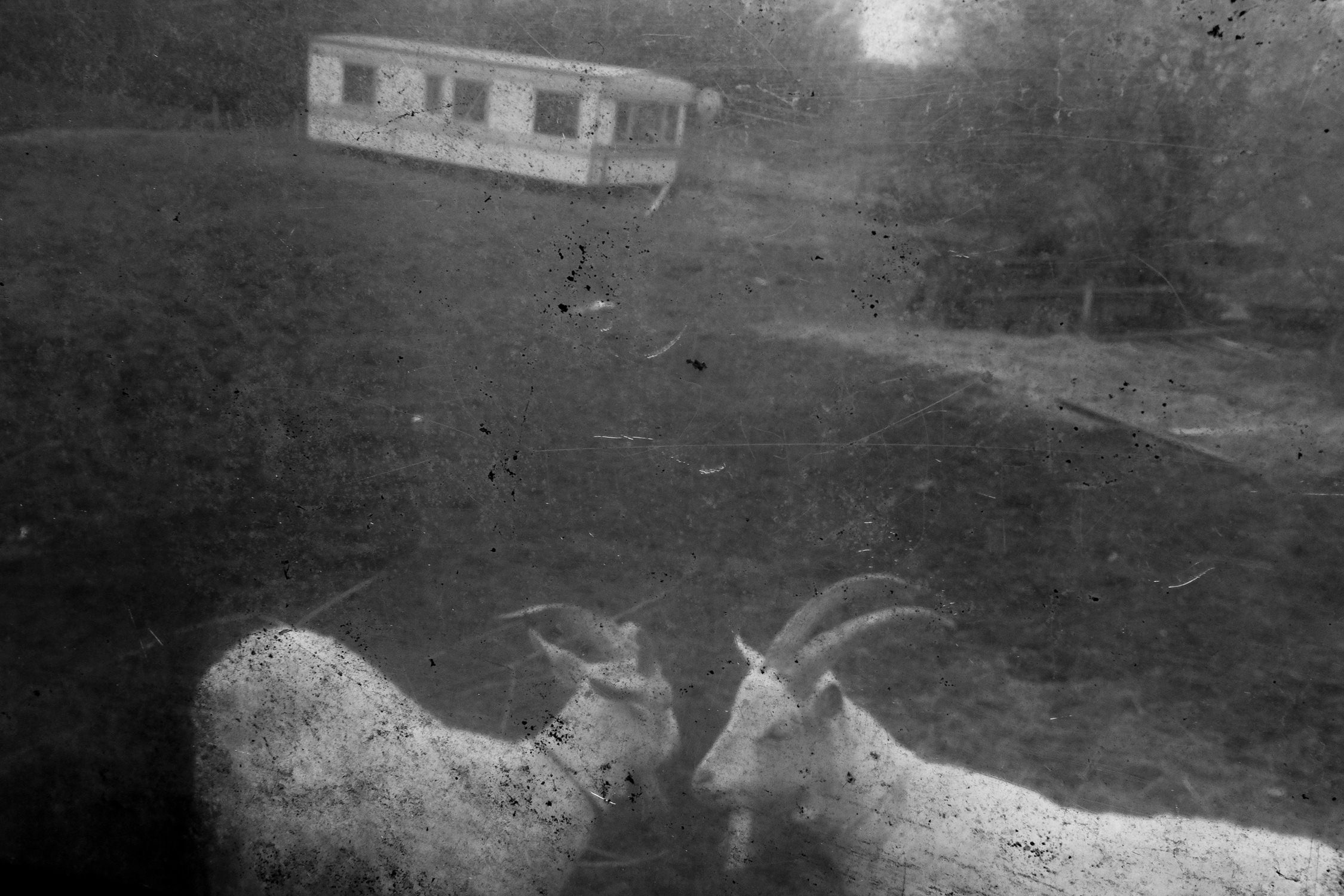
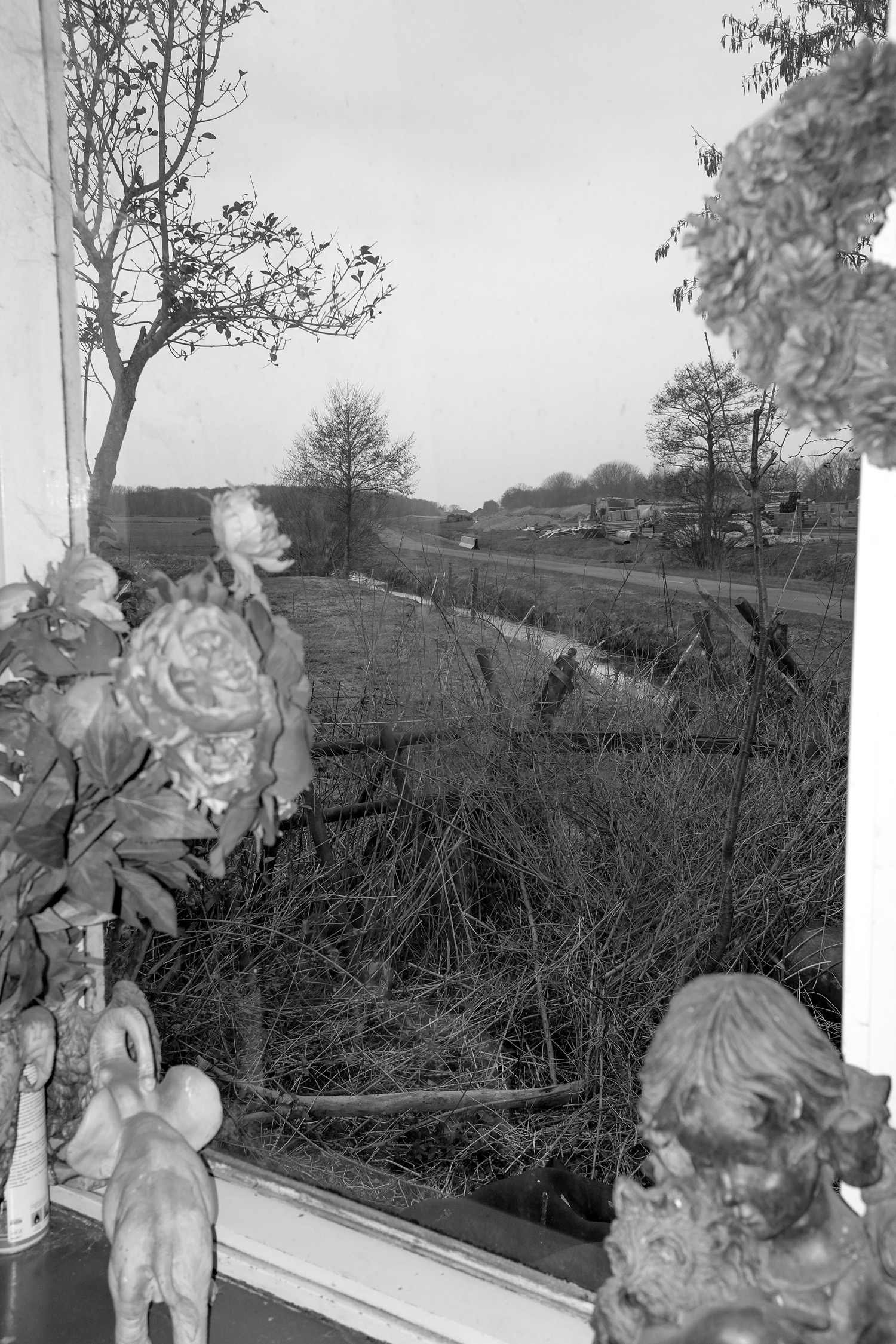
Do you think Street Photography has a more documentary or more artistic value?
It depends on your approach I think. If you look at Winogrand’s work for example you can see it is also a document of that era, besides him being a great artist. I you look at the work of say someone like Siegfried Hansen, it is much more about shapes and patterns. It usually is both in a way. I think it also depends on how you present your work. I could make very large prints of my work, put it in a gallery and I would be the artist. But I can also put it in a book, provide it with captions of time and place and I would be the documentary photographer, documenting the life in my province.
It is something I think about though. I’m working on a book about the racetrack (cars) near my house. All the photo’s have very much a “street” approach (whatever that is) and my being artsy at times. But the way we are putting it together is much more about documenting this unique place and these amazing events that take place there.
Another project I’m doing, about my hometown, has a similar approach in the way I take photos, but the book I want to make out of that will have more of an artbook feel. It seems more appropriate with the project.
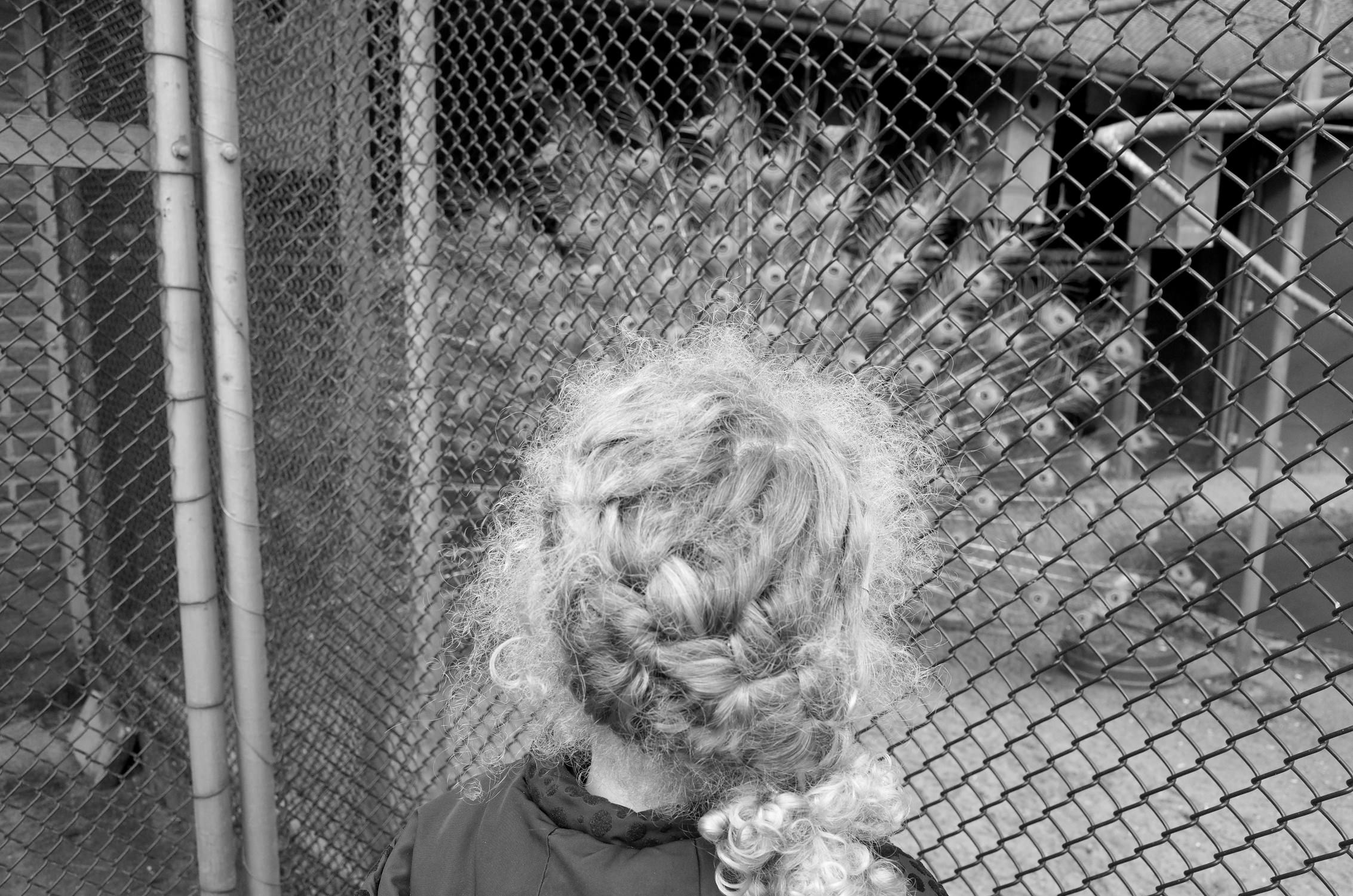
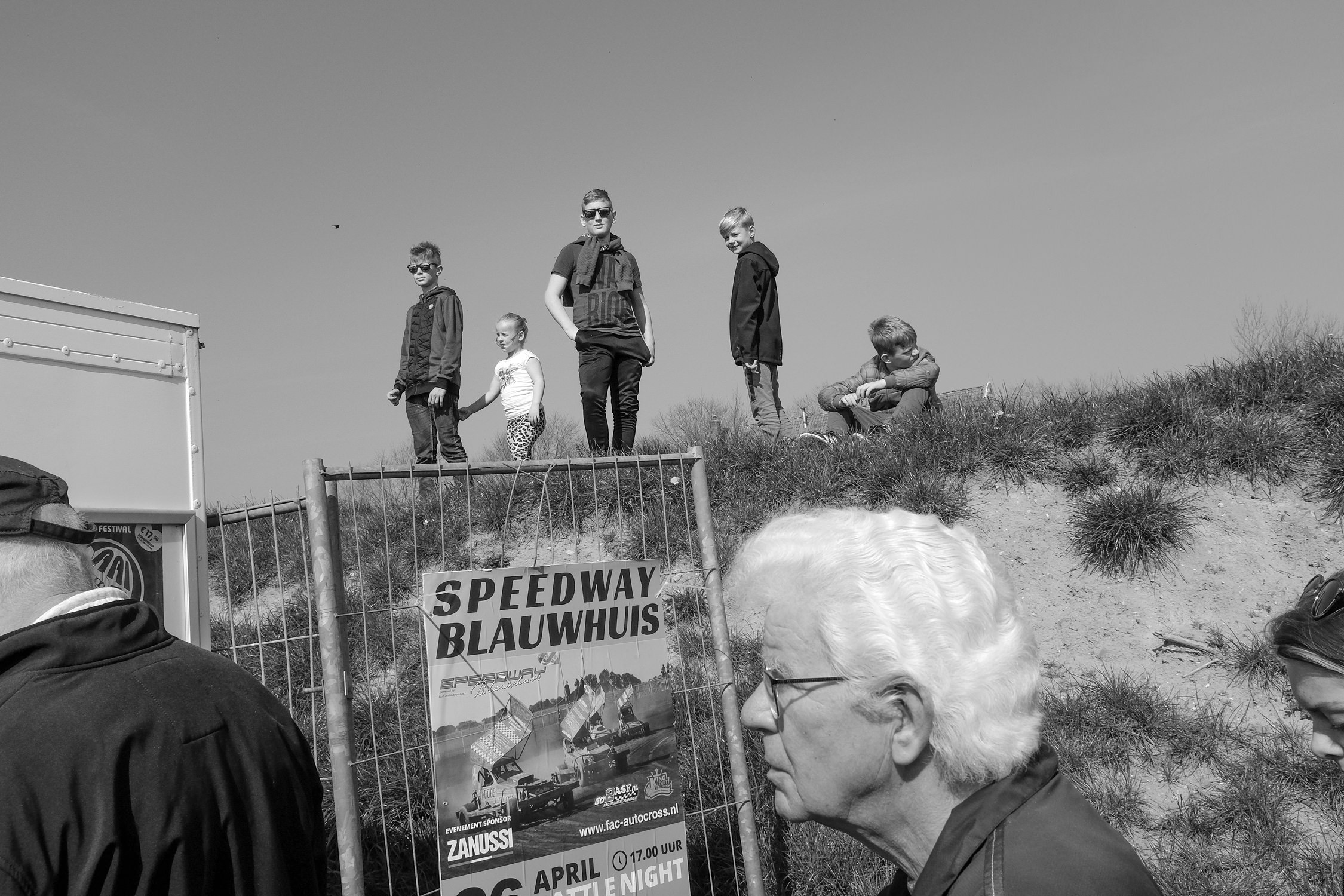
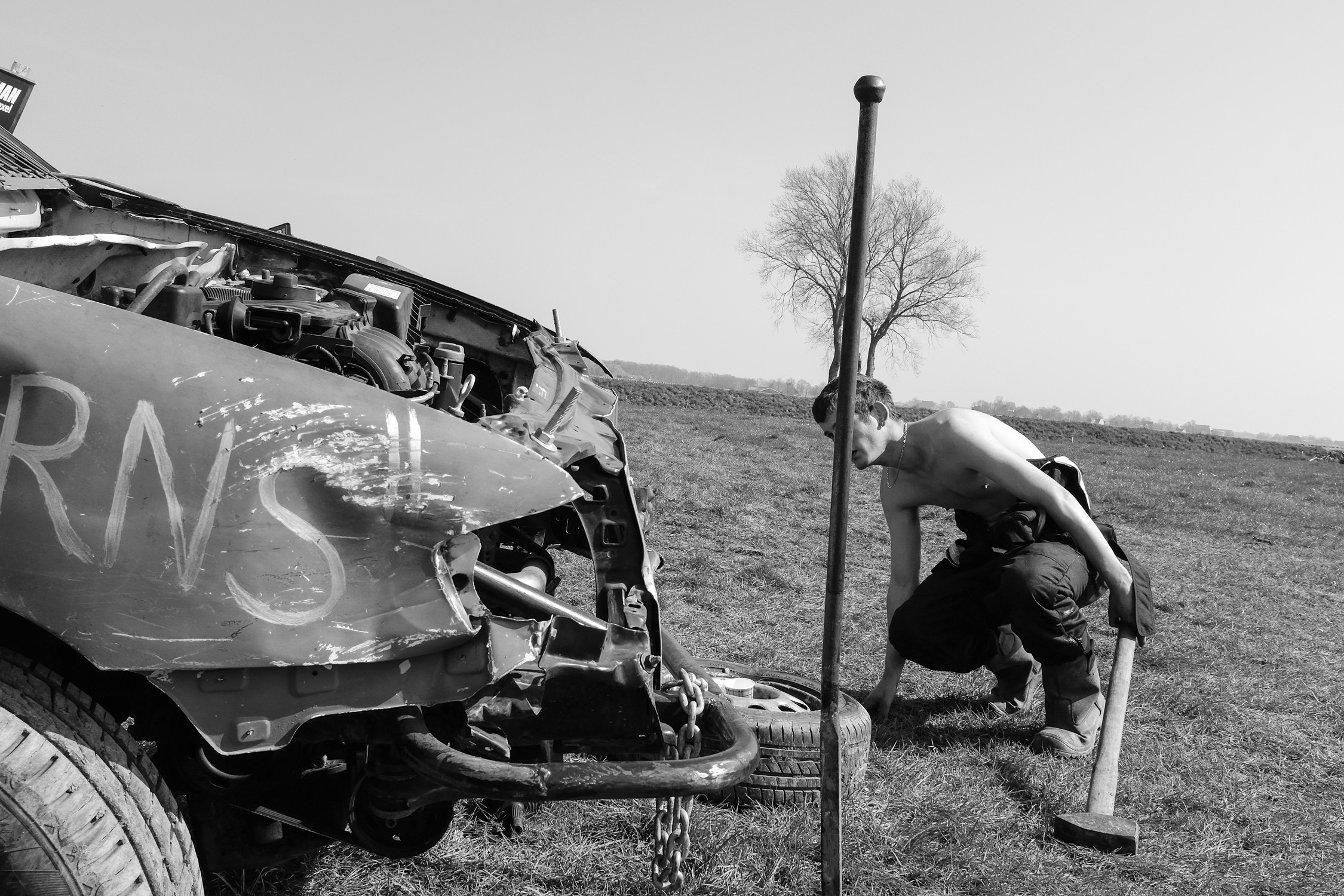
When you take photos, do you ever have a theme/project in mind?
Yes and no. It is usually more about the location. I go somewhere specific and that place is the theme. The kind of work I make there depends entirely upon what I encounter, but also on my own state of mind. And after that, if I make a zine or book out of that depends on what I have shot. So everything is pretty open from the start. And I like that a lot. It is more about connecting with a place in the first place. Just being there.
Do you think there are ethical limits in street photography? Do you think it’s possible to shoot everything and everybody? What is your approach in street photography?
Yes there are. But they are also personal. Personally don’t want to take photo’s that make people look really bad or stupid, unless they maybe behaving really bad or stupid. I don’t want to take advantage of people who are vulnerable. And I don’t want to intrude in people’s life too much. Everybody has a right to some privacy I think. So I act mostly like a fly on the wall. No hipshooting, I use the viewfinder all of the time, but my body language usually says, I’m not here, just ignore me. And it works most of the time. But I do enjoy some of the work that has been done by photographers who do get into people’s faces or do take photo’s of vulnerable people/situations.
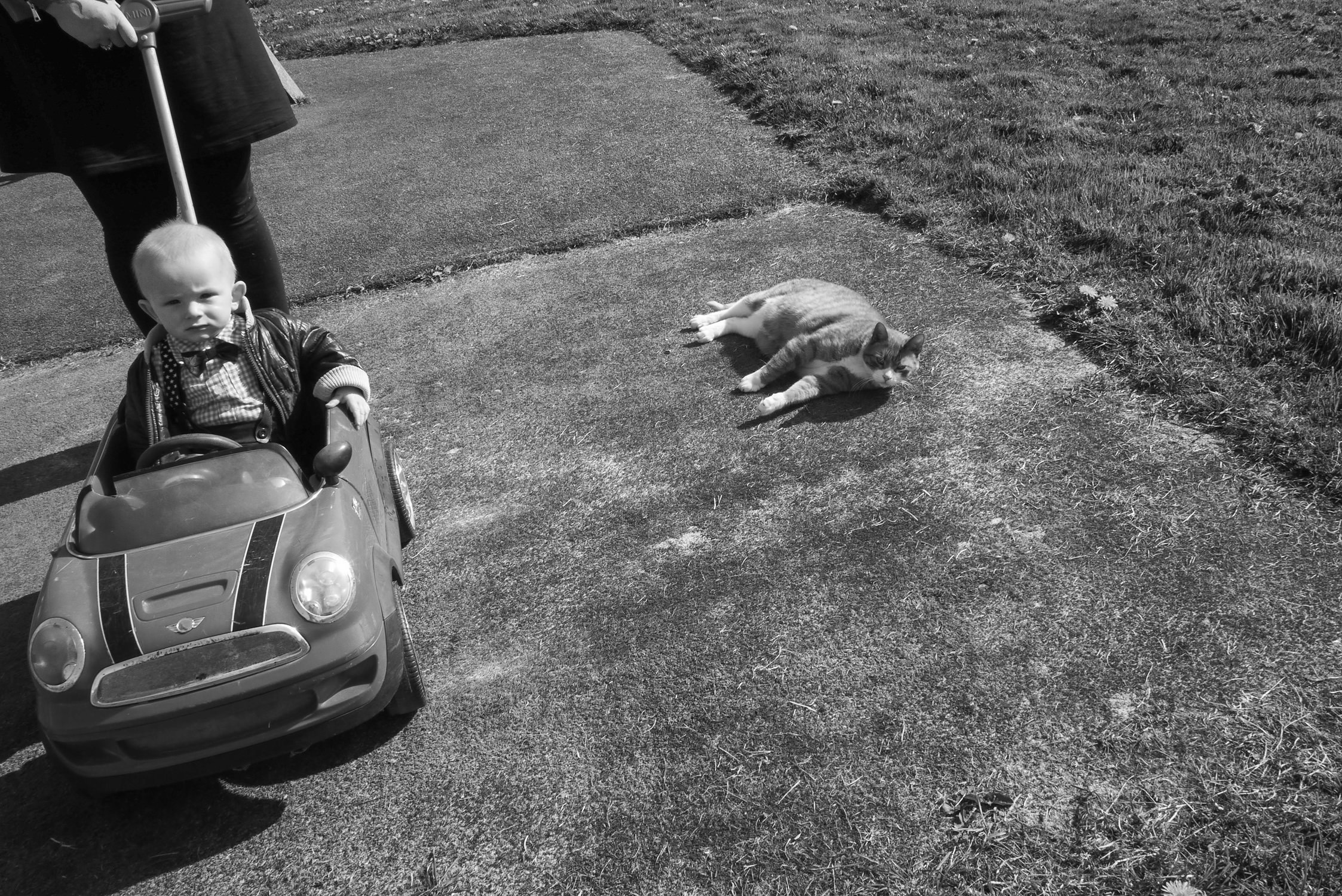
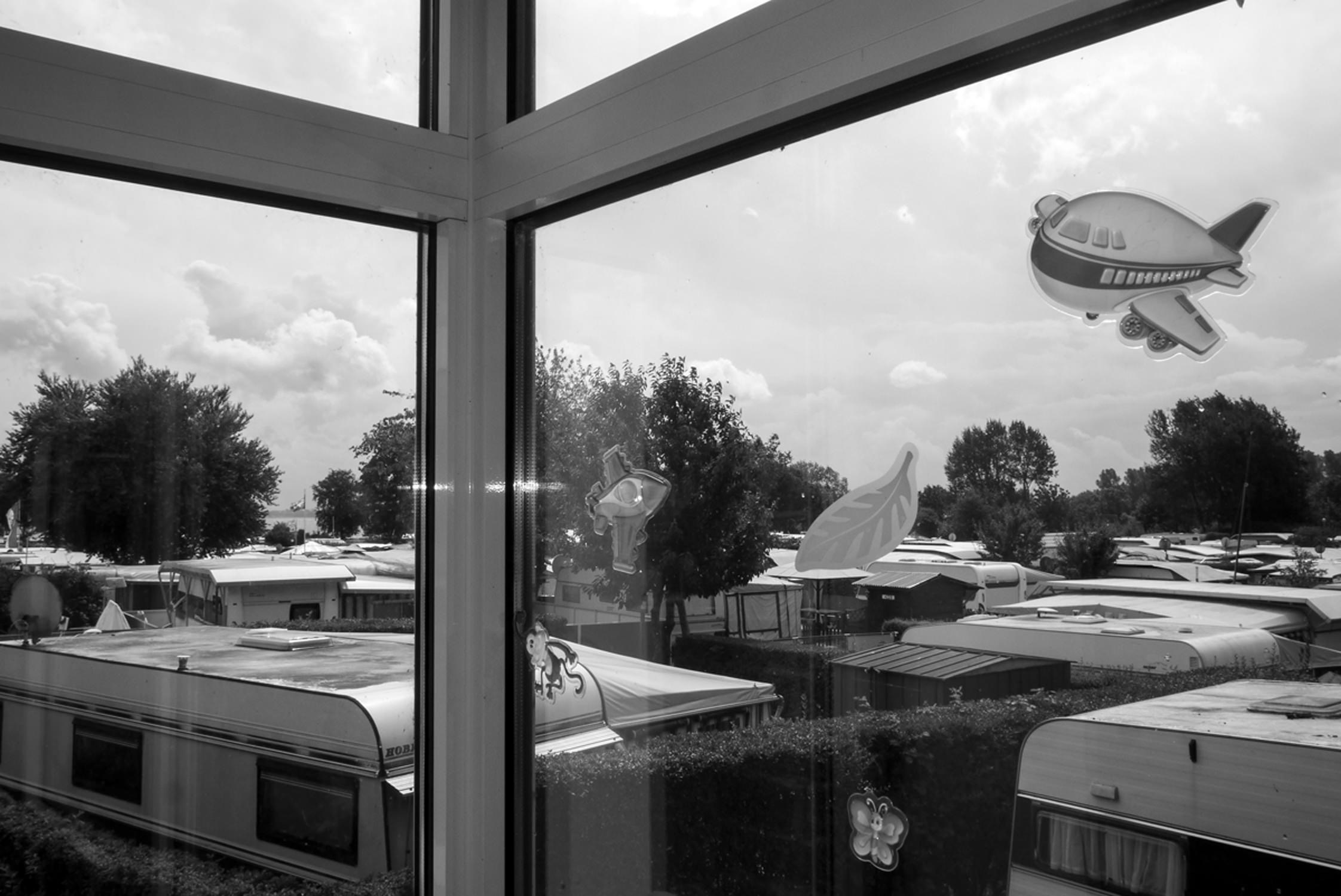
What kind of equipment do you use and what role, in your opinion, does equipment have in street photography?
Right now a Fuji X100T and a older Panasonic GF3, which actually was the first decend camera I bought when I started in 2013. I’m not a gear freak. I stick to one camera/lens for a long time, until it breaks. For me the challenge is in the looking, being at the right place and time, the framing, the timing. The camera is just a tool I want to comfortable with and not have to think about too much.
If you had to choose one lens that you would have to be using for the rest of your life, which one would that be and why?
35 mm. It’s the right lens for the kind work I make. And it’s flexible. A bit wide, but not too wide.
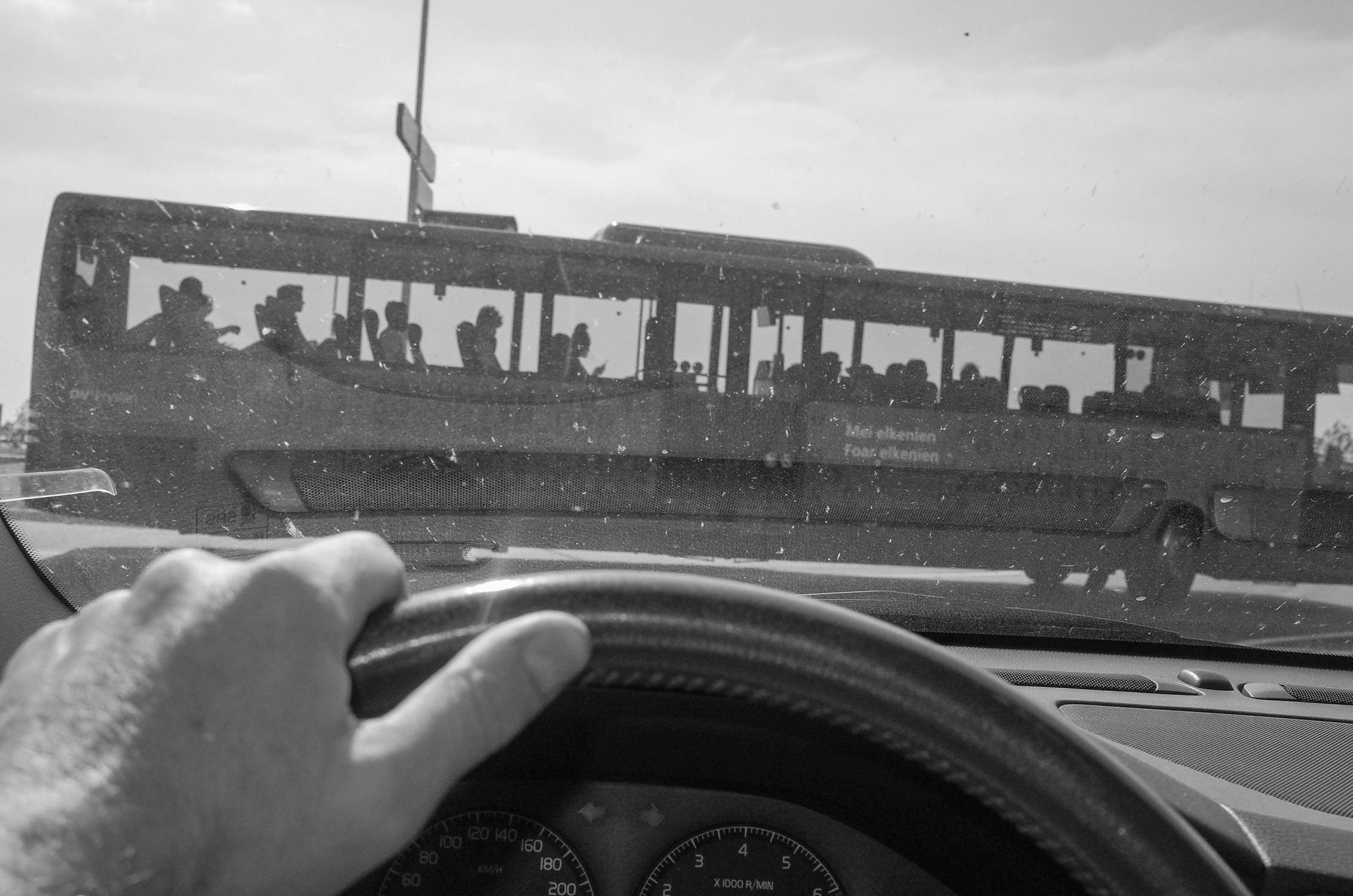
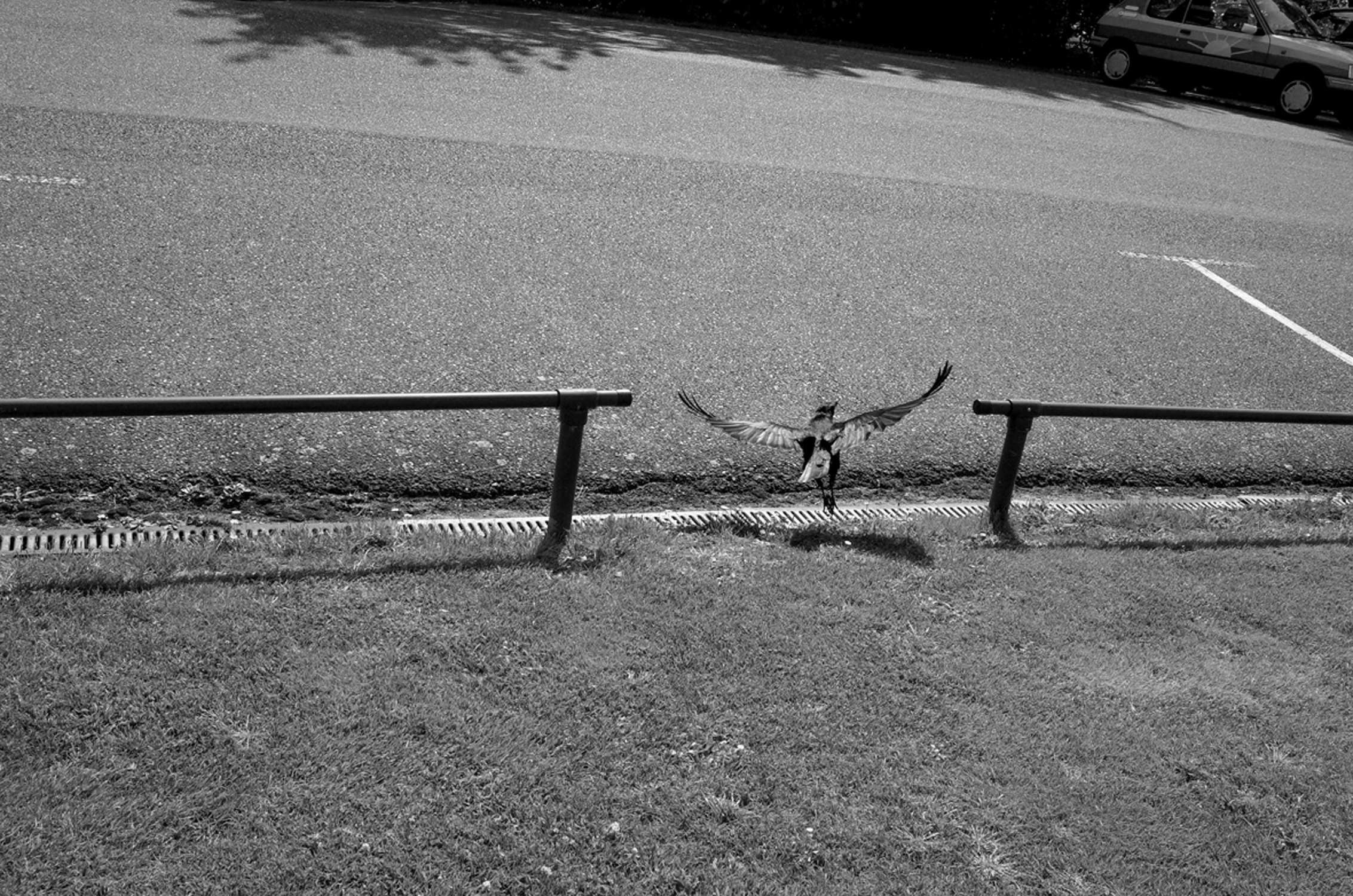
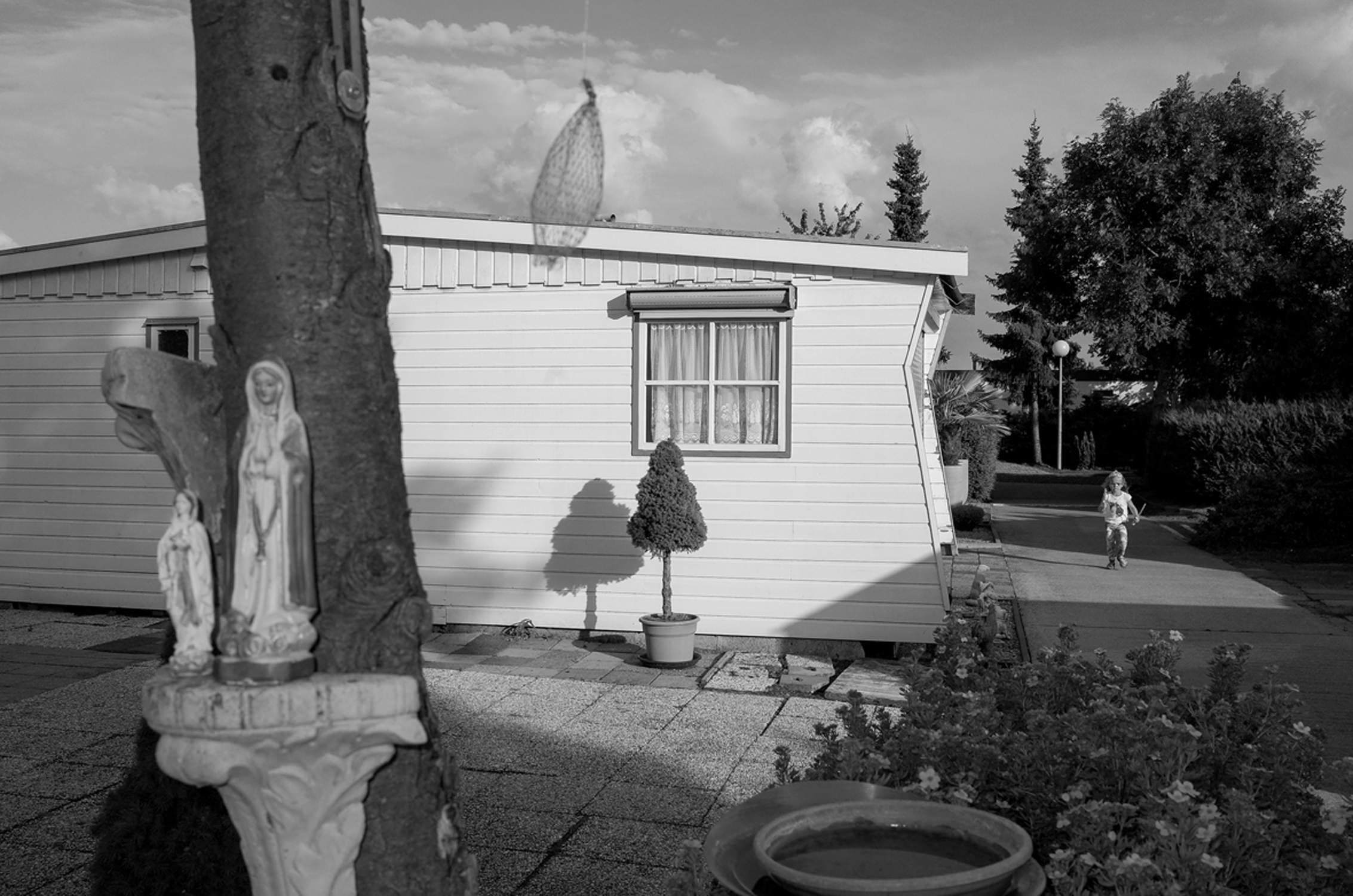
“I shot analog for a while, in 2015 and 2016. Did my own developing. And that was a good experience. It made me more aware of how I want my photos to look. But returning to a digital camera after that was very liberating. I don’t want to think about changing rolls, how much rolls I have got left, or how expensive each shot might be when I am out taking photographs.”
After shooting, what actions do you take in terms of processing and editing?
Processing, hardly any. Editing is a bit tedious. I’m about a year behind on that.
I go through the work I’ve shot. Pick out the ones that are interesting to me for whatever reason. Do the necessary bit of processing. Then send them to my phone. And from that collection pick the ones I want to post on Instagram. In this way I go through them a couple of times and I have to decide if I find them interesting enough to share. Sharing them creates a distance to my work. Instagram has in this way become an important part of my editing process and my account is more of a sketchbook then a portfolio. Using it as an portfolio feels way to static to me.
Are you currently working on any project?
Yes! The book (Blauwhuis) I mentioned earlier, about the racetrack near my house. It should be out this year: Hardcover, handbound, with about 50 double paged spreads.
My hometown project. It will be an exhibition in November. And I want to make a little book out of that work as well.
And besides that I will continue to work on my “Postcards from Fryslân” project. I just spend a week at a festival on one of the Dutch islands. It will be part of the project, but might also turn into a zine.
Other than that, I have a notebook full of ideas and a hard disk full of work. All I need now is time.
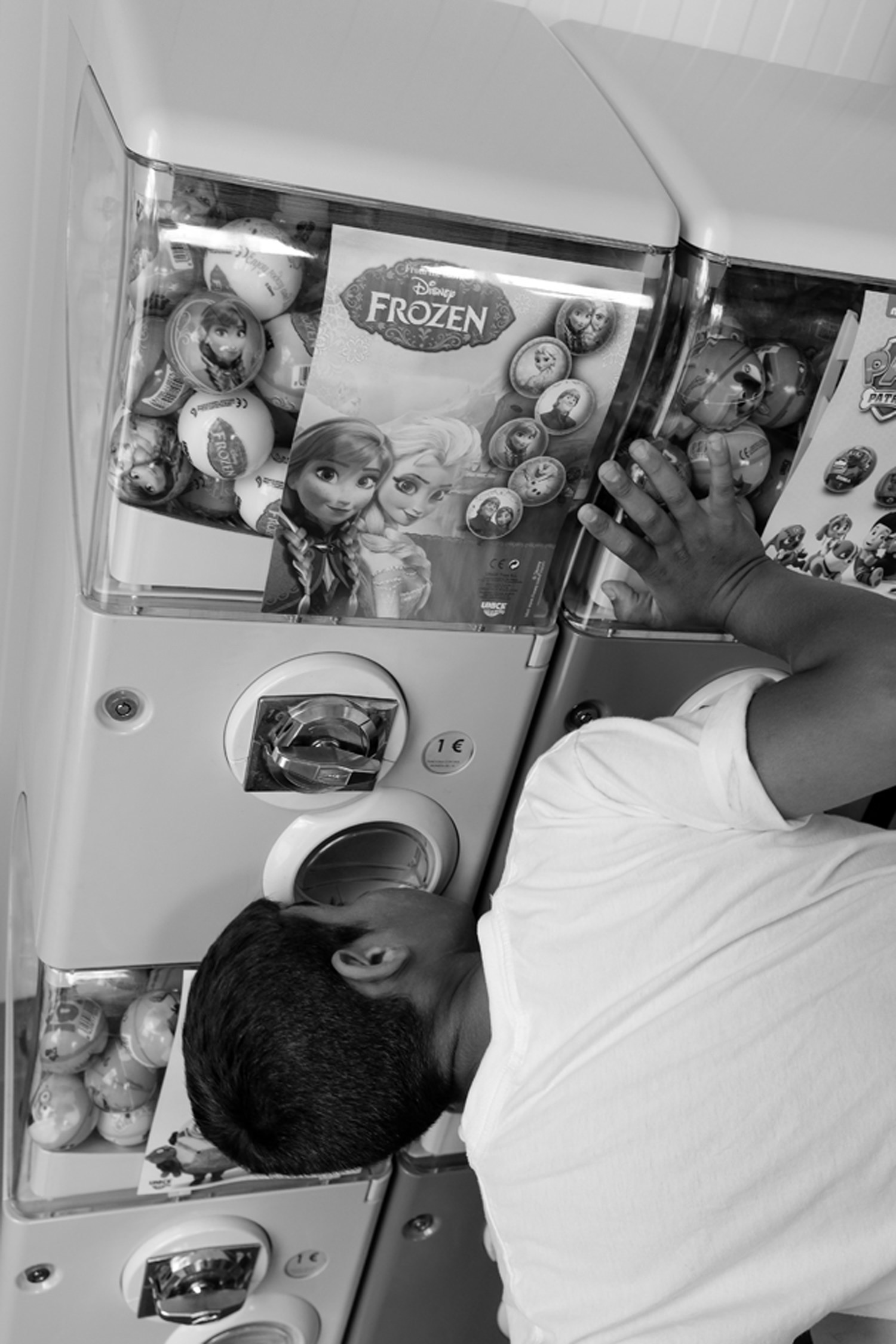
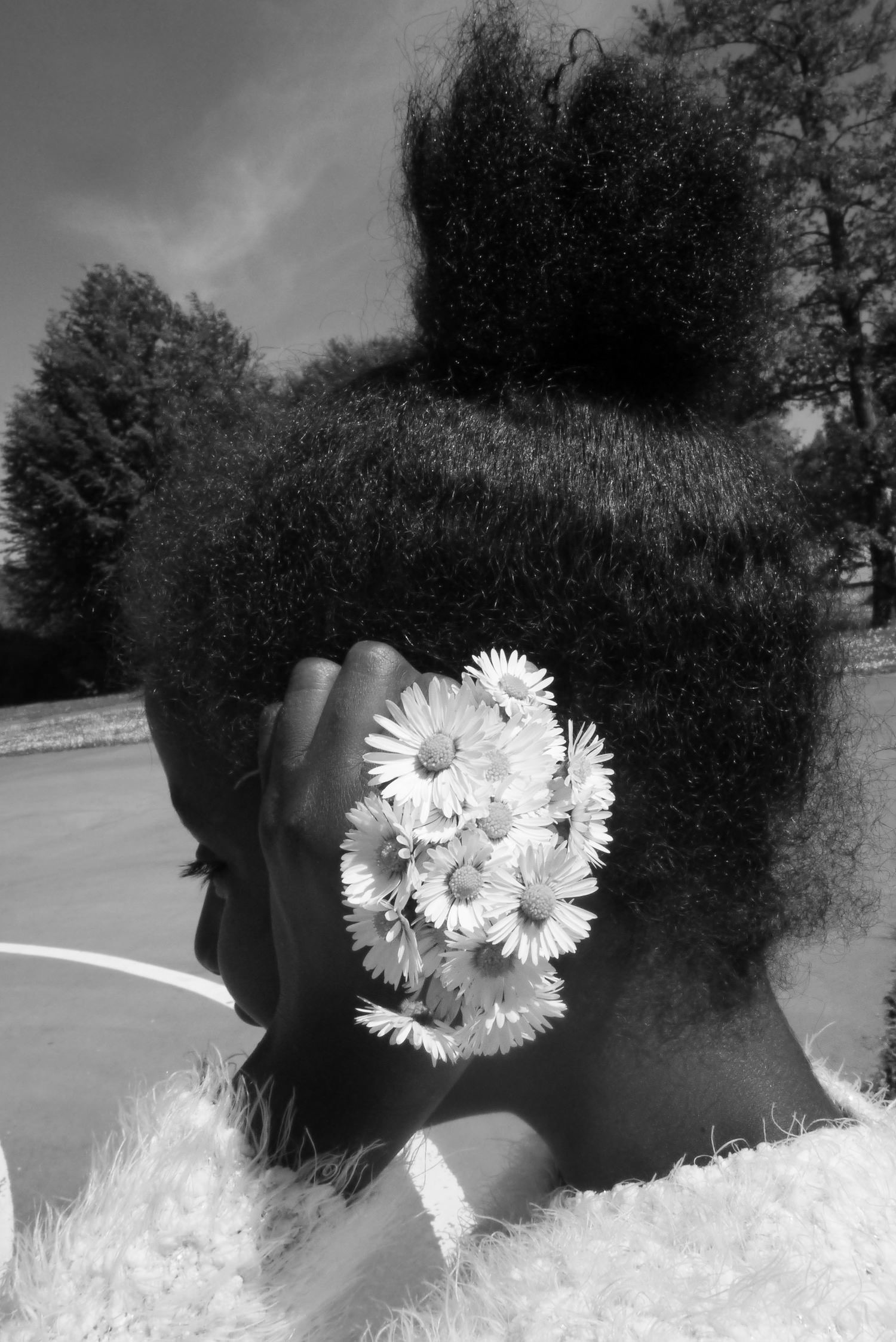
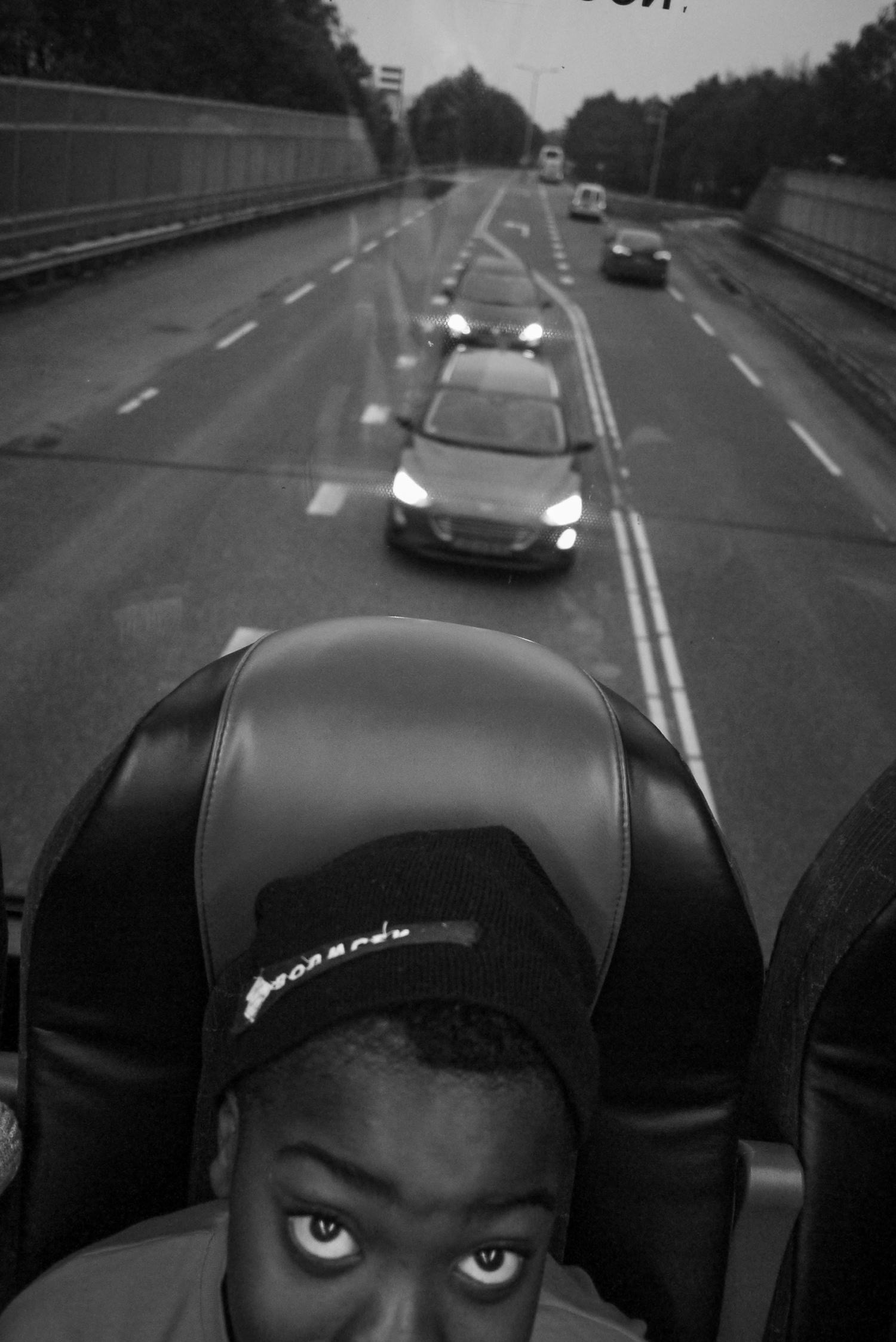
Which are your favorite photography books?
At the moment:
- 1964 / Garry Winogrand
- Valpariso / Sergio Larrain
- The Michel Vanden Eeckhoudt Retrospective
- Fernweh / Teju Cole
Is there a country or a city that you like to photograph more than others?
Oh, there are so many places!! I have been taking photographs in my own “backyard” for the last 9 years now. So I don’t need to go far to find interesting material. And if you switch that around: you can probably send me anywhere and I would have a blast! But maybe New York would be my first choice, just to see what all the fuss is about.
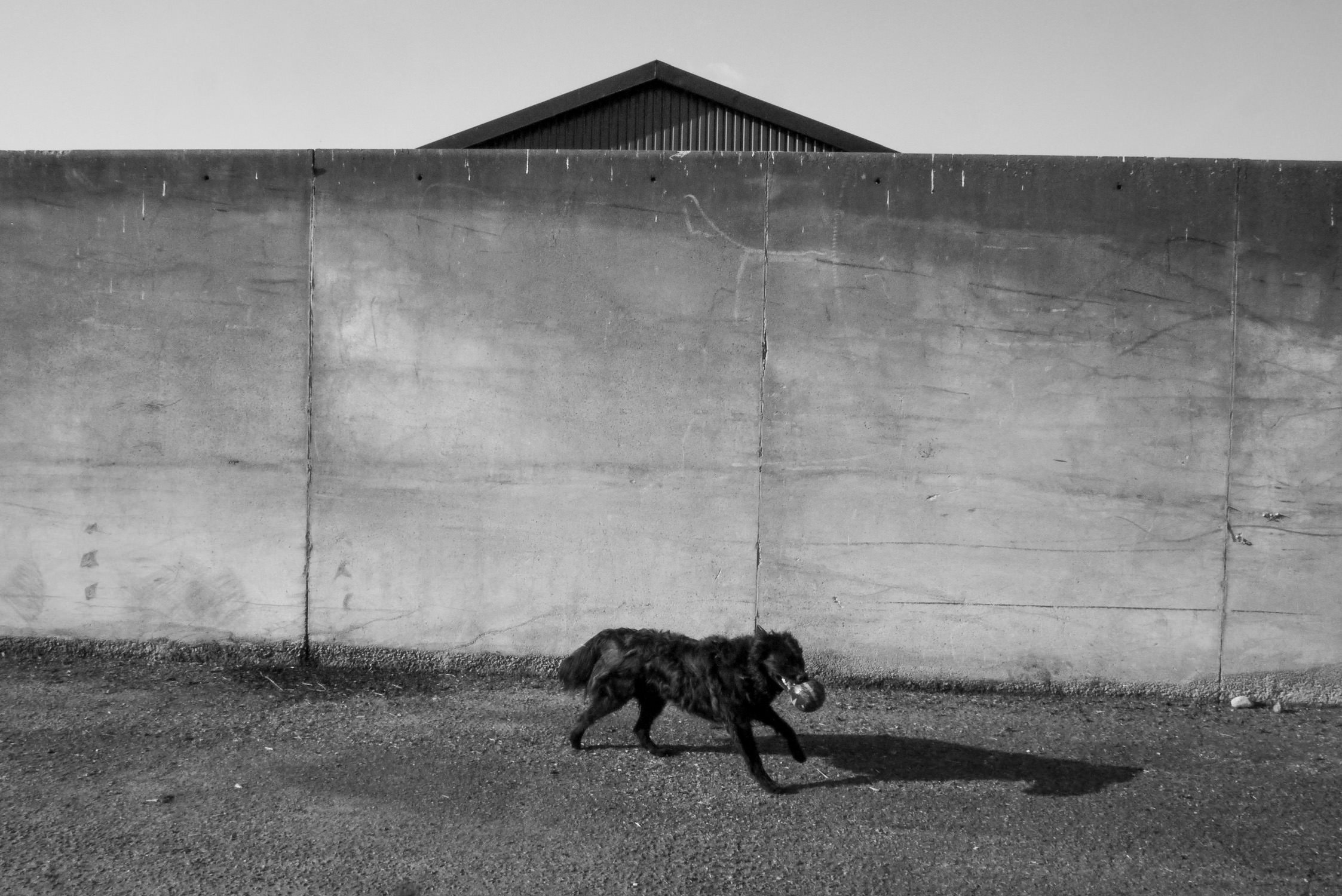
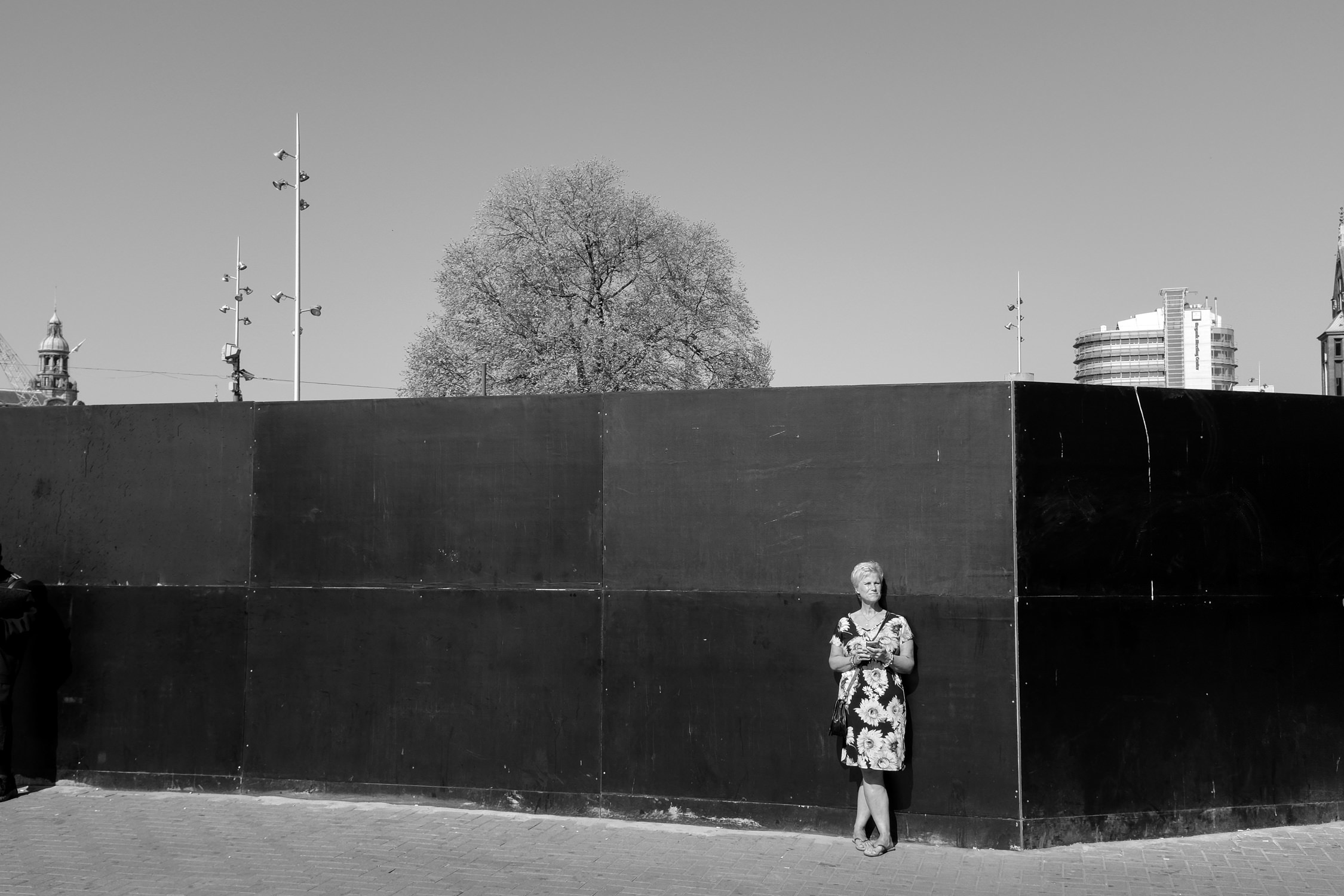
What advice would you give to someone who is starting to do street photography?
First of all: enjoy the whole creative process! Enjoy being out walking, looking, being alive. Take pictures of what interests you. Of the moments and things you feel connected to and keep doing that! Don’t have a fixed image in your mind of what you want your pictures to look like. That will make you blind to all the great things that are happening out in the world.
Thank you Bouwe!
BOUWE BROUWER BIOGRAPHY
Bouwe Brouwer (1977): primary school teacher at a refugee camp; studied fine arts and was trained as an illustrator; since 2008 internationally published writer of haiku and short stories; fell in love with photography in 2013.
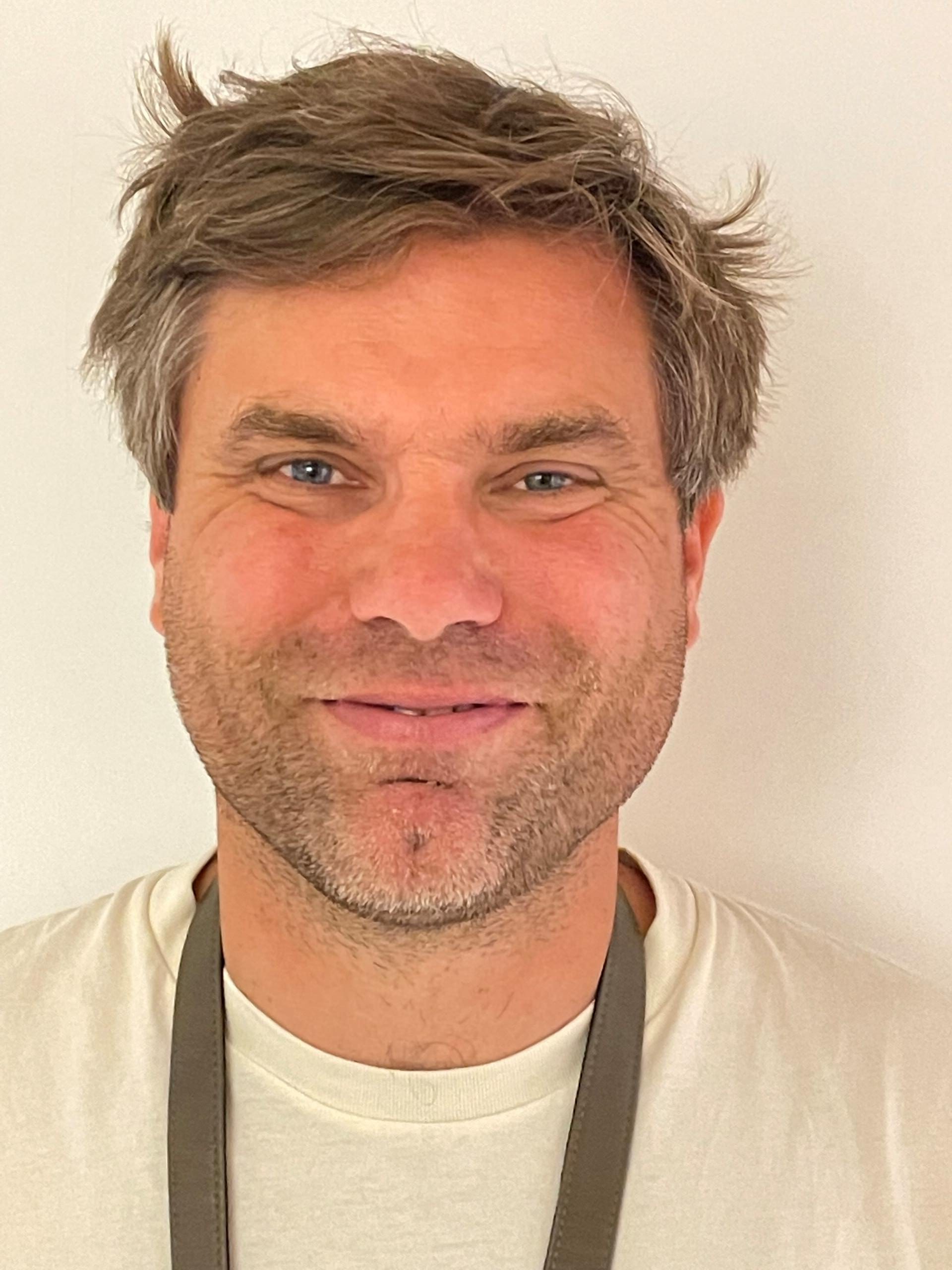
Bouwe Brouwer Links:
